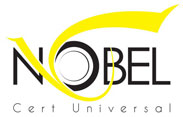Keywords: ethics and social responsibility essay Business ethics (also known as Corporate ethics) is a form of applied ethics or professional ethics that examines ethical principles and moral or ethical problems that arise in a business environment. It applies to all aspects of business conduct and is relevant to the conduct of individuals and business organisations […]

NOBEL Standards
Food irradiation has the longest history, more than 40 years, of scientific research and testing of any food technology before approval. Research has been comprehensive, and has included wholesomeness, toxicological, and microbiological evaluation. Worldwide, 38 countries permit irradiation of food, and more than 28 billion lb of food is irradiated annually in Europe. It is […]
Continuous improvement is very important for because driving efficiencies is critical in today’s competitive market- but mainly because of a sudden changes in business strategy. To develop continuous improvement in organization, top managements continually examine all processes to find and eliminate problems. Typically, it is possible by making small changes rather than implementing a large […]
1: EXECUTIVE SUMMARY: Information has always been an organization’s central resource. Without it, the modern organization simply could not function. Business records are operational—and sometimes strategic—assets. They have economic, legal, fiscal, risk-management, and competitive values. Many organizations, however, lack effective policies and procedures for systematic control of their recorded information. As a result, they keep […]
Customer satisfaction is a key and valued outcome of good marketing practice. According to Drucker (1954), the principle purpose of a business is to create satisfied customers. Increasing customer satisfaction has been found to lead to higher future profitability (Anderson, Fornell, and Lehmann 1994), lower costs related to defective goods and services (Anderson, Fornell, and […]
This International Standard is addressed to top management. It provides guidelines for realizing financial and economic benefits through the effective application of eight quality management principles derived from ISO 9000:2005. These principles are subsequently referred to as “management principles” within the body of this standard. The intent of this document is to provide top management with information […]
The use of electronic communication media and services internationally for the cross-border transmission of information and payment and payment-related transactions between financial institutions, as well as between financial institutions and their customers, continues to increase. In order to facilitate automated processes in support of straight through processing (STP) in this environment, ISO 13616 has been developed […]
SA8000 is an auditable certification standard that encourages organizations to develop, maintain, and apply socially acceptable practices in the workplace. It was developed in 1997 by Social Accountability International, formerly the Council on Economic Priorities, by an advisory board consisting of trade unions, NGOs, civil society organizations and companies.The SA8000 streamlines the complexities of navigating industry and corporate codes to […]
Institutions and intermediaries are building infrastructures to provide new electronic financial transaction capabilities for consumers, corporations and government entities. As the volume of electronic financial transactions continues to grow, advanced security technology using digital signatures and authority systems can become part of the financial transaction process. Financial transaction systems incorporating advanced security technology have requirements […]
This International Standard has been drawn up with the objective of promoting confidence in bodies performing inspection. Inspection bodies carry out assessments on behalf of private clients, their parent organizations, or authorities, with the objective of providing information about the conformity of inspected items with regulations, standards, specifications, inspection schemes or contracts. Inspection parameters include […]




